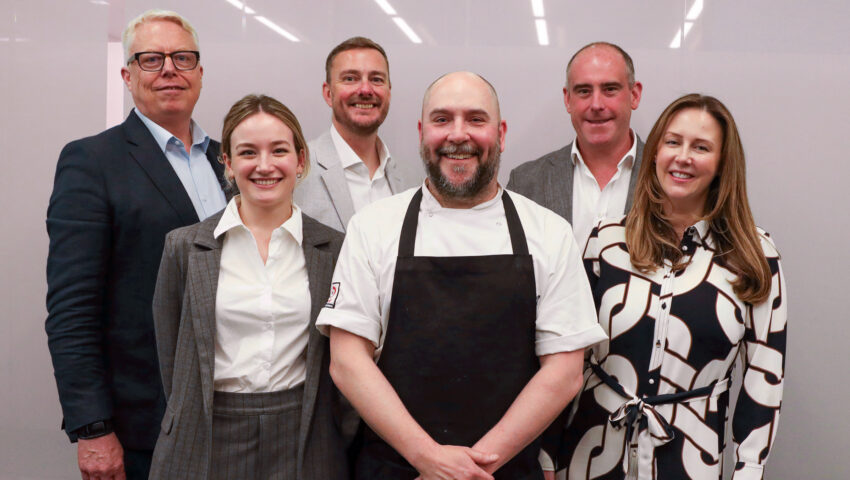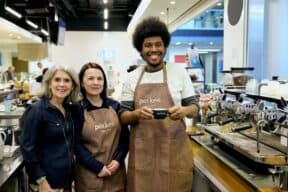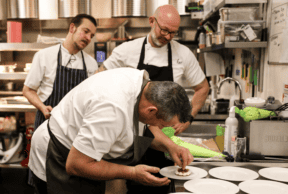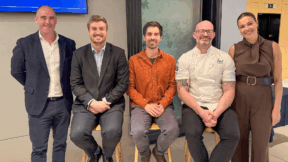News
A taste of tomorrow – responsible sourcing

Through a menu-led conversation, we explored what it really means to serve food with impact – from regenerative flour to ethical chocolate.
It is no secret that where and how we choose to source our ingredients from can greatly impact the world around us. At our recent ESG Roundtable, we explored how some of our most sustainable suppliers address social and environmental issues and give back to communities and the planet.
A menu that speaks volumes
During the three-course lunch, Mike Hanson (Director of Sustainable Business) and Tara Henry (Head of Procurement) let the menu do most of the talking. Guests explored topics such as regenerative practices, supporting UK agriculture, seasonality, animal welfare, deforestation and fair pay.
Flour that rebuilds the soil
Our chefs started off by showcasing Wildfarmed Flour used to make the focaccia and served it with whipped butter. Wildfarmed was founded in 2018 with the objective of transforming how wheat is grown through regenerative agriculture practices that replenish the soil. This helps remove carbon from the atmosphere, minimises river pollution, increases biodiversity, and doesn’t require pesticide. Wildfarmed also prioritises farmer welfare.
Seasonal, local, and full of flavour
The starter was new season asparagus with a cold pressed rapeseed oil emulsion and Lord of the Hundreds cheese, this demonstrated how sourcing ingredients locally and seasonally is not only better for the environment and supporting our farmers, but also more tasty too.
The true cost of responsible sourcing
Guests were then invited to discuss whether UK businesses are ready to prioritise responsible sourcing, which can come at a higher financial cost. This discussion spilled over into the main course, which included a vegetarian English grains risotto, made with seasonal spring vegetables and Waste-Knot ricotta, and a Lake District Herdwick lamb served with wild garlic, courgette puree and buttered Jersey Royals.
Less, but better: rethinking meat
These dishes emphasised the importance of seasonality, reducing food waste, and sourcing meat with the highest welfare standards and best environmental practices. As lamb is a high-carbon footprint ingredient, the key takeaway was that we must adopt a ‘less, but better’ approach to enjoying meat.
Ethical endings
The roundtable finished over an Islands Chocolate dessert with croissant ice cream, followed by some petit fours and coffee. This served as the perfect opportunity to emphasise the importance of ethical sourcing of ingredients such as chocolate, which have a history of poor human rights and labour abuse. By adopting a seed-to-bar approach to producing chocolate in Saint Vincent, Islands Chocolate can ensure that farmers are paid their fair share, while the product remains of the highest quality and fully traceable.
What’s next on the ESG roundtable?
Our next ESG Roundtable will take place this summer, centred around community driven catering, and how we as caterers can maximise our social impact. Our autumn event will explore the issues posed by non-food items, including packaging, this topic is in line with feedback from our previous ESG roundtable attendees.





